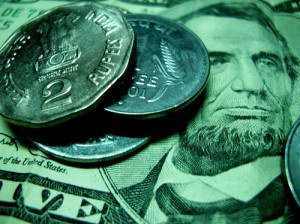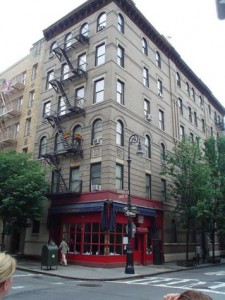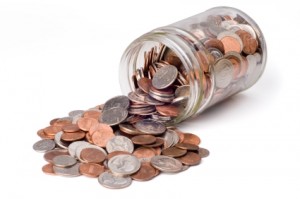April 4, 2012
 In this post I’d like to address the question, ‘What is foreign exchange market sentiment?’ This might be useful if you’re thinking about changing currencies, but have heard that sentiment toward the UK pound or euro or whichever currency you’re trading is negative, and want to know what this means.
In this post I’d like to address the question, ‘What is foreign exchange market sentiment?’ This might be useful if you’re thinking about changing currencies, but have heard that sentiment toward the UK pound or euro or whichever currency you’re trading is negative, and want to know what this means.
Foreign exchange sentiment is the general feeling toward a currency at a particular time, among investors on the foreign exchange market. It’s a summation of how the countless millions of investors in foreign exchange feel about one currency at present. Sentiment can become more upbeat or downbeat, depending on what’s influencing that currency on a certain day or month. It can also be used to describe the mood on the foreign exchange market as a whole.
For instance then, when looking at sentiment on the foreign exchange market as a whole, one very common way is to describe the market as either having risk appetite or being risk averse. This tells us whether foreign exchange investors are feeling brave (i.e. there is risk appetite) meaning they’re more likely to invest in small or riskier currencies, or whether they’re being cautious, and hence putting their funds in strong and stable economies believed to be safe (i.e. they’re risk averse.)
Depending on whether there is risk appetite or not, the entire outlook for the foreign exchange market can change. The US dollar for instance tends to strengthen when there is risk aversion (i.e. there’s a big political or economic threat in the world) because the US economy is the backbone of the global system. It’s hence a safe place to put money. The UK pound too tends to benefit in times of risk aversion, because it’s thought stable. On the other hand, currencies in smaller and less stable economies such as New Zealand and Canada (whose prospects are tied to the price of commodities) tend not to benefit when there is risk aversion.
In addition to looking at sentiment on the foreign exchange market as a whole, you can also look at sentiment concerning a specific currency. This tends to reflect not the global outlook, but the factors affecting that particular currency at a certain time. These factors tend to be political or economic. For instance then, if you’re looking at the euro right now, you might say that sentiment is cautious but optimistic, because Greece has just received its second EU bailout. This has cheered investors. On the other hand, cautious remains because Europe is in recession right now. This is reflected in euro weakness.
You should now have a better idea what foreign exchange market sentiment is. If you have any other questions about foreign currency exchange then visit foreign exchange specialists Pure FX.
Tags:
Currency,
economy,
Foreigh Exchange,
Forex,
forex trading,
world economy
March 2, 2012
 New York has begun doing what any major city does when it runs out of real estate, but with great success. It has started increasing the rent for up to $5000 for a single bedroom apartment, not a better deal for an average family earning $100K a year. And to date there are no witnesses of slowing in the growth of the rental prices in this city.
New York has begun doing what any major city does when it runs out of real estate, but with great success. It has started increasing the rent for up to $5000 for a single bedroom apartment, not a better deal for an average family earning $100K a year. And to date there are no witnesses of slowing in the growth of the rental prices in this city.
The ever-taller high rises, extremely profitable to the owners relative to the forecasted construction costs, provide homes for escalating population. While single family homes that are put up for rent are typically larger, with private yards, the condos are barely 1000 sq. ft. but with views of the city and scenery to die for. Extra features such as gym, playgrounds, club house and concierges provide an interesting alternative to living here.
A two bedroom single family home in the heart of the city can cost around $6000 and as low as $750 in a suburban area outside the city, almost double the cost of what it was two decades ago. The downtown part has a rent of anywhere from $1500 to $2200 for a studio, and $3000 for a 2 bedroom, while upper east side-the affluent area where most skyscrapers are-can go as high as $10,000. Although the outskirts have seen a slight decrease in the influx of people after the recession, the very wealthy area have done very well in maintaining this price over the last ten years.
Reasons for Rent Increases :
There are various theories behind what is really causing the rental prices to increase in New York. And most prices are driven by owners and their agents convincing people to rent while justifying that they are seeing a completely rational price in comparison with the cost of owning a home. One can note that the recent rental boom has not been limited to New York but has been in full swing in other states such as California, Washington and North Carolina. The wealthiest cities and neighborhoods have experienced the greatest home appreciation recently, and these increases have outstripped rental growth in such markets.
Let us look at some of the theories that is driving the rental price here:
Theory 1: Demand and Supply:
People who are on an edge of buying houses in NY are seeing that housing and mortgage markets are imperfect, with real estate agents not representing the buyers interest and appraisers being paid to justify exorbitant prices. They are realizing that homes under this scenario are not worth what they were worth previously. Land is scarcer in the most exclusive communities and people renting would pay large premium for living in such communities.
Theory 2: Renting is Cheaper than Owning:
Renting is one way of showing that home prices cannot escape the fundamental forces that drive them in the long term-income. The housing prices have grown exponentially with respect to renting, and in this massive economy people are unable to pay large portion of their paycheck toward their house. People fearing the real trouble meeting their obligations in the future such as divorce, job loss and medical emergencies, want to post-phone buying and just rent for a while.
Theory 3: Population Growth and Immigration:
Probably the most popular reason as to why rent prices has seen an increase in recent years. Most new immigrants are renters and prefer to rent as long as they could save money to buy a home, resulting in more demand for rental properties.
Theory 4: Escalating Construction Cost:
Even though home builders are on the sell side of the market, they are unable to fair given the high cost of construction, compelling them to increase the price of houses to a level not reachable by an average middle class family- another economic reason that people are renting rather than buying. More so, builders claim that it is the zoning and building restrictions that are the culprit in higher rental prices.
Where The Current Rental Market is Heading:
Even homeowners with less leverage in their homes are now feeling relatively safe renting the houses given the current trend. Considering the shaky economy and no real income growth, people are beginning to dedicate their resources and attention to rent in an attempt to avert a real disaster from buying a house.
David Haynes is a writer who searched for the Lettings Bristol had to offer when choosing his home.
Tags:
finance,
financial growth,
Growth,
money,
planning,
Prices,
real estate,
Rent,
world economy
January 19, 2012
 A number of people these days are in the minds of buying Iraqi dinar, as it opens up an additional investment benefit for the future. Another appeal that lies with the idea of buy Iraqi money is the affordable rates. People from all across the world are banking upon the idea of investing in the Iraqi currency for reaping rewarding benefits through the “get-rich-quick” scheme. Usually, it is considered that the Iraqi dinar investment is certain to offer high returns in recent future, as the country stabilizes and economy soars in the country.
A number of people these days are in the minds of buying Iraqi dinar, as it opens up an additional investment benefit for the future. Another appeal that lies with the idea of buy Iraqi money is the affordable rates. People from all across the world are banking upon the idea of investing in the Iraqi currency for reaping rewarding benefits through the “get-rich-quick” scheme. Usually, it is considered that the Iraqi dinar investment is certain to offer high returns in recent future, as the country stabilizes and economy soars in the country.
Well, prior to investing in the Iraqi dinar, it is important for you to know the differences between the old and the new dinar. This is important to ensure that you are relying on a profitable investment that is sure to bring in rewarding returns for you. Investment in old dinars is sure not to offer you profitable returns, as these are no longer considered worth the investment. The new Iraqi dinars are available in denomination of 50, 250, 1000, 5000, 10,000 and 25,000 dinars. If you are looking forward to a valuable investment opportunity then, focus on buying dinars that are worth the value.
It is also essential for you to know the terms of spotting a counterfeit dinar, the moment you wish to buy Iraqi money. While buying foreign currency and considering an investment on it, it is important that you understand the counterfeiting terms well, as into prevent and avoid fraud dealings. The new dinars come with the most modern characteristics that help in preventing counterfeits. The features that the new Iraqi currency comes with are raised letters, security thread, optical variable ink, and watermarks.
While you are considering investing in a foreign currency, always keep in mind to rely upon genuine and trustworthy traders in the market. It is always advisable that you visit the local bank inquiring about Iraqi dinar and the buying procedure. If your banks deals with foreign currency then, chances of obtaining the Iraqi currency from the bank stays to be high. In other alternatives, you can search the Internet for finding dealers online or rely upon the local market traders. Always remember to check the credibility as you set to buy Iraqi money by checking on their registration with Better Business Bureau (BBB) and U.S.A treasury department.
While wishing to buy Iraqi money, it is essential for you to place your order cautiously to save yourself from frauds. You can place your order through varied means that include money order, credit card, check, etc dependent on your trader and mode of transaction. All that you need to keep in mind is that you are dealing with large amount of money and therefore being careful should come naturally to you.
Tags:
budgeting,
cash,
economy,
financial planning,
money,
money/economy,
personal finance,
world economy
January 12, 2012
 Clearly you’ve heard about the current economic climate, with banks failing or losing their credit ratings, big countries on the verge of going bankrupt, masses of government debt, etc. You’ve definitely heard it all. As a result, investors have become incredibly worried about what the world economy will look like over the next 5 years.
Clearly you’ve heard about the current economic climate, with banks failing or losing their credit ratings, big countries on the verge of going bankrupt, masses of government debt, etc. You’ve definitely heard it all. As a result, investors have become incredibly worried about what the world economy will look like over the next 5 years.
Consequently, it’s no surprise that there’s been an big increase with investing in valuable metals, such as silver, gold, palladium, and platinum. But why are investors so interested in metals? What is it about these metals that attract so much interest?
If you think about it, 99.9% of all investments are based on some concept, rather than an actual object. e.g. company shares don’t actually exist (not even on paper these days), they’re just a culmination of the perception of that company and how well they are doing. So the intrinsic share value is not based on anything physical. It’s not to say that shares are worthless, quite the contrary, just that they’re not a physical object.
Therefore the point is that investors like to think of their investments as something tangible. Metals are physical objects, and actually exist in the real world. Property exists in the real world, but decreasing house prices mean that investors are not investing in property anymore. Additionally, property is not a liquid asset, simply meaning it takes a long time to sell a property. Comparatively, selling metal is very easy and can be done within minutes.
A combination of metal being a real-world object, and being very easy to sell, precious metals such as gold are very attractive investment assets. If you think about it, gold has always been a desirable and attractive possession throughout the ages. However, there’s another fact that completes the reasoning why gold in particular has become so popular in the last 12 months. Gold is a scarce resource, and it’s increasingly tough to find. Gold isn’t really being mined anymore, it’s being chemically extracted. Therefore the gold we have now is pretty much all that we will have. Gold has always been a finite resource.
So why is gold so popular right now? It’s easy to sell, it’s easy to buy, it’s generally held it’s value over the years. Gold is being seen as a currency-neutral form of investment where its value is not subject to the media-induced hype facing our economies at the moment. If you can keep your gold secure, it’s definitely a safe place for your money at the moment.
This is a guest article by Mike Stirling who researches the precious metal markets, particularly the currently-increasing scrap gold prices.
Tags:
budgeting,
economy,
financial planning,
gold,
gold investments,
investments,
money,
personal finance,
savings,
world economy
 In this post I’d like to address the question, ‘What is foreign exchange market sentiment?’ This might be useful if you’re thinking about changing currencies, but have heard that sentiment toward the UK pound or euro or whichever currency you’re trading is negative, and want to know what this means.
In this post I’d like to address the question, ‘What is foreign exchange market sentiment?’ This might be useful if you’re thinking about changing currencies, but have heard that sentiment toward the UK pound or euro or whichever currency you’re trading is negative, and want to know what this means.



Recent Comments